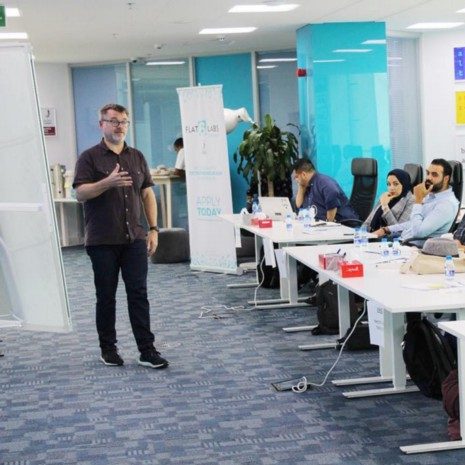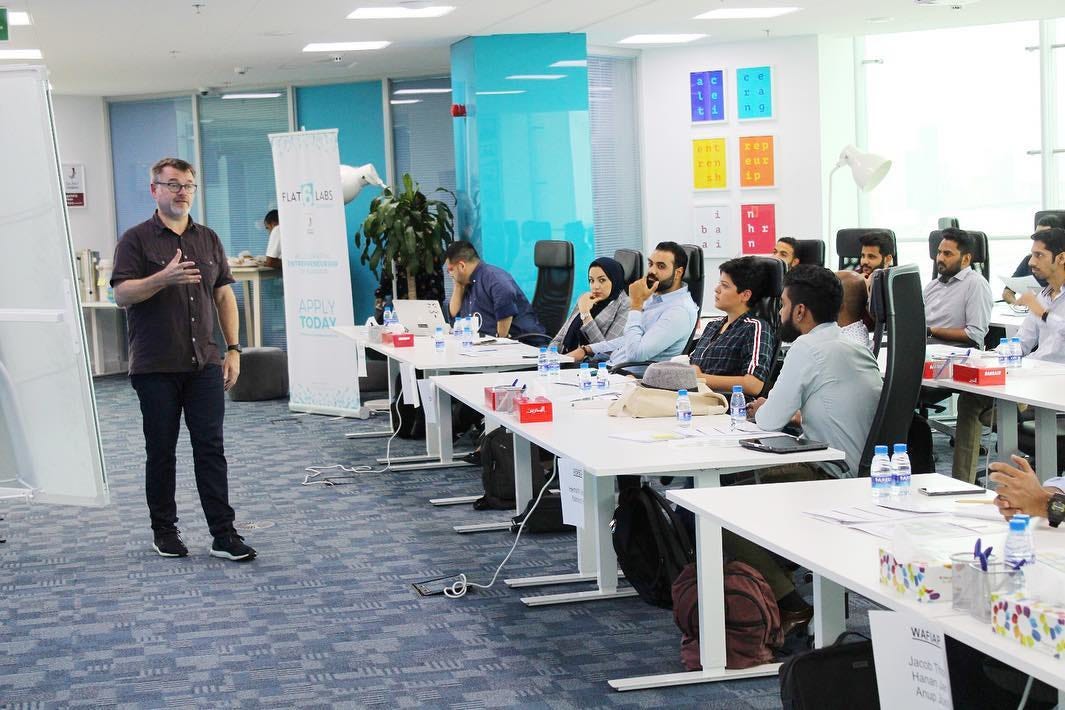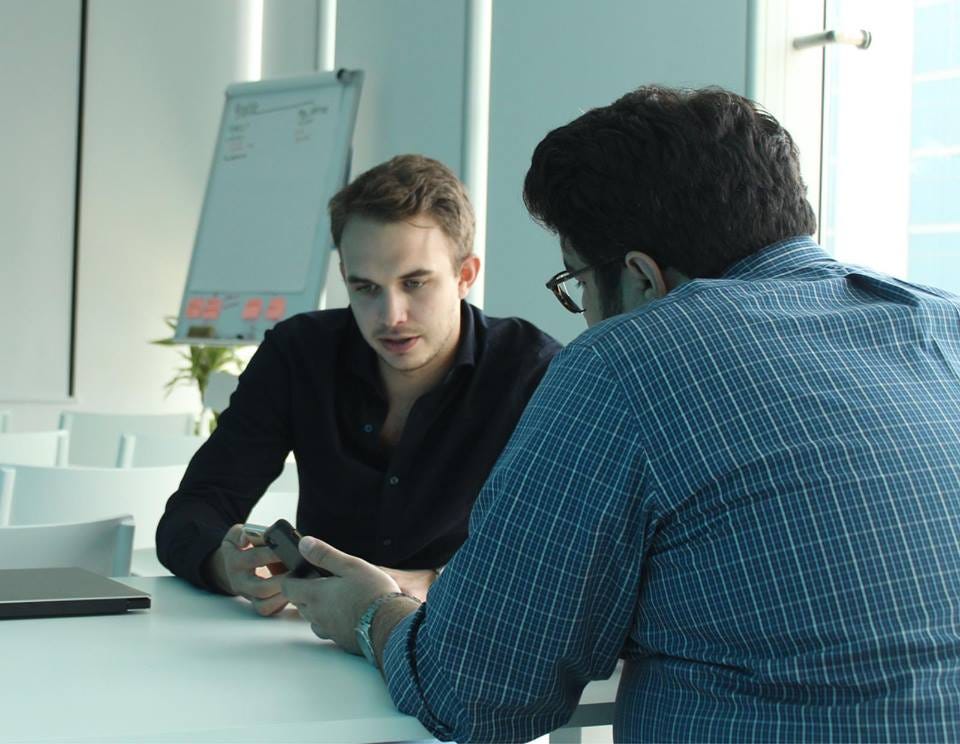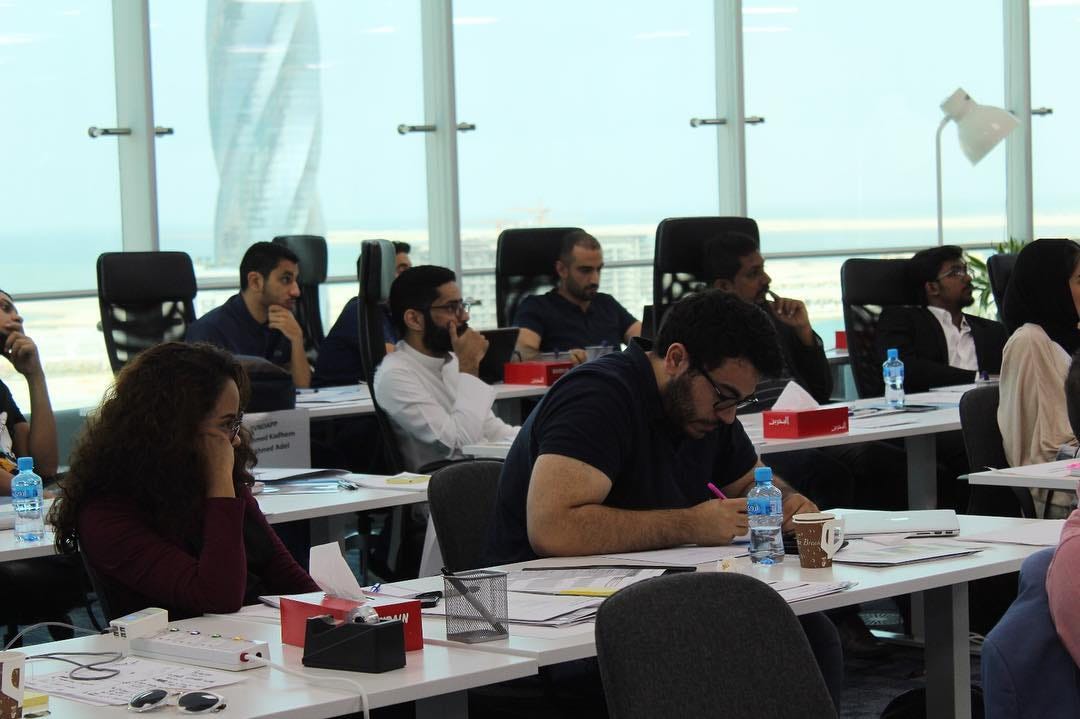For the longest time, gaming has been perceived to be a tool of pure entertainment, perhaps to pass time or to have fun with friends. However, this generation of tech-driven entrepreneurs are working on bringing change to the table by utlising the already existing know-how and merging it with innovative tech-based solutions and startups that will create impact; possibly even changing the world.
This kind of change is only possible through the heaps of gamers around the world, specifically in the Middle East & Africa (MEA) region. In one research by NewZoo (2017), a gaming research entity, it identified that there is around 587m active gamers in the MEA.

With almost 25% year-over-year growth rate in revenues in MEA (a total of $4bn in 2017), a much higher rate than Latin America (13.9%), Asia Pacific (9.2%), North America (4%), and Western Europe (4.8%), the MEA is fertile ground for limitless innovation and expansion in the gaming industry.
This expansive and ever-growing market allows startups to position themselves in a market that is flourishing with different opportunities to grow, but considering that the market is huge, which platform should they be using for their services and products: gaming consoles, PCs, or everyday smartphones and tablets?
The report published by SaudiGazette, highlighted that the MENA region has a year-over-year growth rate of 26% percent of the world’s mobile-gaming market in 2017. In addition, as illustrated in the Menara forecast for technological trends in the MENA region, it predicted that “between 2015 and 2022 the mobile game development industry in the Middle East is predicted to grow from $680 million to $2.3 billion.”
While the mobile gaming industry was estimated to be around $680m in 2015, Daniel Inn, the Co-founder of 24platform, told Wamda that the “only comparable figure he could find for the total market size of gaming is around $1.4bn” (and he said it wasn’t representative of the actual revenues); making the mobile gaming market account for more than 48% of the total gaming market (PC, console, mobile) in 2015.
Newzoo latest global report on mobile gaming also estimated that the mobile gaming market made 51% ($70.3bn) of the global mobile gaming market in 2018, with a possibility of reaching $100bn by 2021. Besides taking the largest share of the market, everyone carries their own daily driver smartphone; it is no longer a luxury, but an essential tool to live in the 21st century.
How Could MENA Stand Out Even More?
So how could startups realise and use the potential that the gaming industry has in the MENA region; and pursue impactful gaming technologies and services, all while depending on limited resources and technologies?
They could start with the firm belief they already have in video games “becoming catalysts for social change, preparing players to emotionally handle heavy realities like love, bullying, and suicide, while bridging certain gaps.” as Sarah Sloat, from inverse.com said. Another leading global figure in the world of impactful games, Susanna Pollack of Games for Change incubator said “games are at the forefront of innovation and storytelling — such a creative and kind of natural way to connect with audiences in a very playful, but at the same time, meaningful way.”
Tackling the limited resources and technologies available, however, comes as the main challenge, but few programs like the Flat6Labs acceleration program could help you with its expertise, resources, and network to overcome this challenge. Some of our startups actually pay testament to our ability at targeting such a niche and growing market in the MENA region: Spicatech Academy, VRapeutic, Seemba, and The Stories Studio stand on top of the helm of presenting our belief in utilising the gaming industry to have an impact.
The Forefront of Building Proactive Game Developers
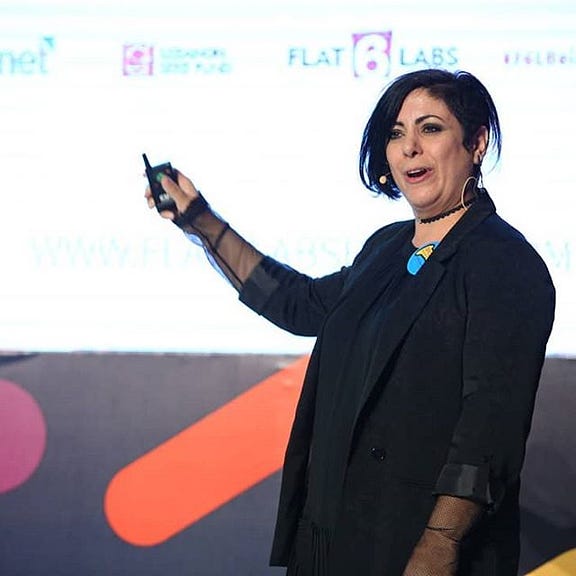
Co-founded by Reine Abbas, Spicatech Academy aims to turn children from mere digital consumers to proactive game developers; this is done through workshops designed for (+5) children that can help them learn game designing, coding, art, implementation, animation and storytelling.
Abbas plays a pivotal role in changing how the upcoming generation look at the industry; instead of viewing it as pure entertainment they can view it as a career where they can develop and earn a livelihood out of.
She also believes in the role that games and the industry at large have as catalysts for positive change, “While I was working with DigiPen and Nintendo in 2007. I created Douma, a game where politicians battle with a live scoring system online to motivate people to play the game. Douma means puppet and I believed we were puppets in the politicians’ hands. All the studies done on this game back then showed that we really shifted violence from the streets to online fun –this is an example of how games can really play a positive role in society.”
On another note, Abbas said that she created another game called Survivor Race at one of her companies, Wixel Studios, and gained 2 million downloads: it was a racing game with messages about global warming and where the heroes are Arabs — not terrorists as often portrayed by western media.

Abbas added that at Spica Tech they have 15 courses and 6 different levels where students aged 14 and above can create any game, even combat games (which include creativity more than violence). “The games are more of an escape rather than a reality, for example, when I work with unfortunate kids, it’s actually a way for them to create their own desired reality and escape their current one.”
To this day, SpicaTech Academy has had more than 500 students from across Lebanon, and the “social impact of our academy is really huge especially in Lebanon and at large, the MENA region. Spica Tech is definitely influencing the regional community because until now there isn’t an education in gaming in our region even though it’s a burgeoning industry globally,” Abbas said.
This change is necessary to compete against other regions and countries outside the MENA region in the gaming market, and to start developing new technologies of our own and to build up different mindsets when it comes to gaming.
In our interview with Abbas after her graduation from Flat6Labs Beirut 1st cycle, she said that Spica Tech is currently playing a role in motivating the youth to create their own video games, and more of this creates more success stories; and the bigger the gaming industry will grow in the region. We are giving them a life-time kit, because coding for games is one of the most difficult educational programs in the world, so giving them this know-how at a young age will help them in their future endeavors.”
Therapeutic Gaming Tech
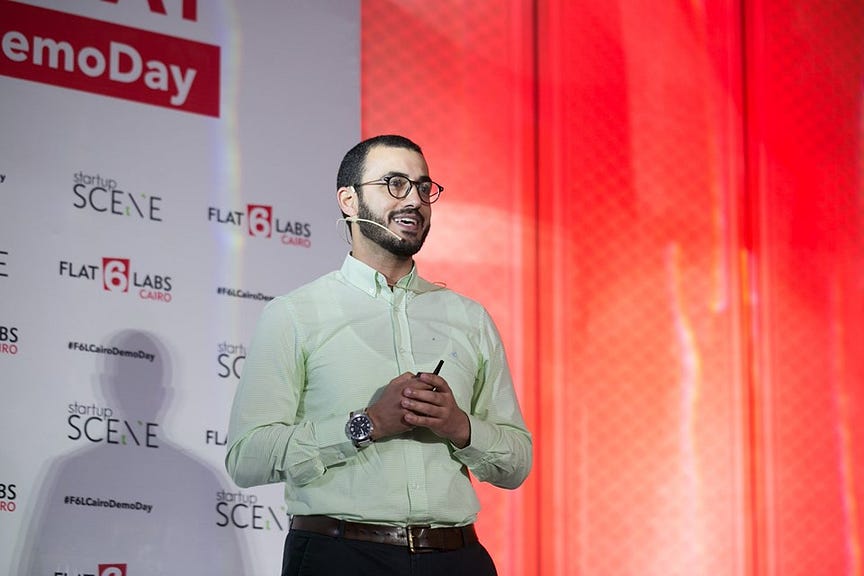
While Spictech’s innovation is driven by changing the way upcoming generations perceive gaming, Ahmed el Kabbany’s — VRapeutic — innovation is driven by an unwavering urge to overcome behavioural disorders in children — utilising virtual reality for gaming therapy and education. In our interview with Kabbany, he said that his product relies heavily on mimicking exposure therapy. A method which has been used to treat Post Traumatic Stress Disorder (PTSD) patients, by exposing them to the source of anxiety at varying degrees until the trigger’s intensity is lessened.
Through creating game-like virtual realities that simulate real life situations, and activities that could act as triggers for children (with Autism Spectrum Disorder (ASD), Attention Deficit Hyperactivity Disorder (ADHD) and other behavioural disorders) — it helps educate children and equip them with the tools to overcome such hurdles.
The tool Kabbany created is a mobile-based gaming application that is fit for most if not all smartphones, and it is currently being utilised in several clinics in Egypt to help children with such disorders. All that is needed is a phone and the commercial VR headset (Oculus Go, Samsung Gear VR, and the like).
However, creating such 3D gaming environments on smartphones is a main challenge for Kabbany’s startup. In our interview with him, he said that “optimising graphics for limited computational resources is difficult, however we are already doing it.” With the advancements made in the processing of CPUs and graphics chips every day, soon enough this obstacle will be out of the way, and VRapeutic’s room for development will expand.
After VRapeutic’s graduation from Flat6Labs Cairo 12th cycle, their next step would be to reach more clinics in Egypt (and expand its operations to MENA through Flat6Labs network), create new modules tailored for different behavioural disorders, and make the technology available for more people.
In Menara forecast for technological trends in the MENA region, it concluded that “educators are increasingly turning to tech to make learning both accessible and relevant to young mindsets, in preparation for a globally competitive workforce ready to take on tomorrow’s challenges. The rise of new media is changing how we learn and communicate. Gaming, animation, and virtual networks demand a new style of literacy and promote new models for collaboration and communication.”
Connecting and Monetising
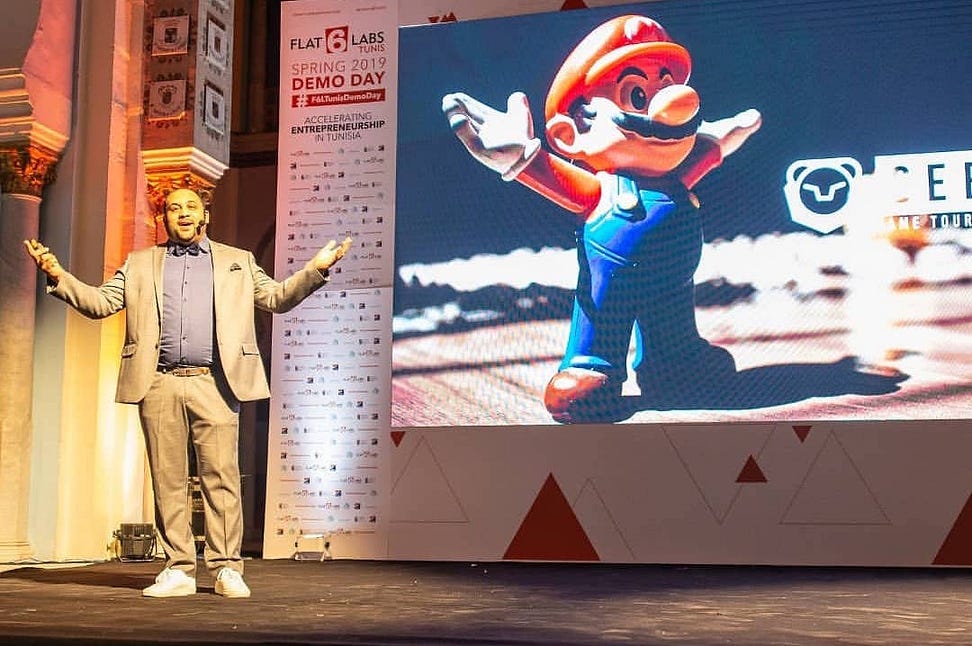
Connecting mobile gamers players across the region and even globally often seems like a tough call, especially when game creators are looking forward to creating large-scale competitive tournaments. However, through Slim ben Nasrallah’s startup, Seemba, a “plug and play” solution, this challenge becomes non-existent — with even an ability to monetise the gaming experience for both the players and the game creators.
Seemba aims to help independent game developers monetise their games and expand their community of users through a plug and play component that allows users to play in multiplayer mode and players to challenge each other for real money and virtual currency that can be exchanged for in-game features and prizes. After and even before graduating from Flat6Labs Tunis 3rd cycle, Seemba has been hosting lots of tournaments, and has partnered up with bigwigs in the telecommunications industry to offer a seamless experience for both players and developers.
This kind of startup can partake in creating a community of competitive players who are striving for the impact of the games they play as much as the game creators. It also helps both earn money to continue influencing masses to follow their own agendas.
Impactful Storytelling

Although the previous startups are using the available gaming tech to educate and treat children; and monetise the mobile gaming industry, The Stories Studio is a whole different story. The Co-founder’s belief, Saba Saleem, is that “games are a holistic form of art, and thus this can be used to create awareness, inspire empathy and positive action.”
Using famous and trending news from around the world as concepts, the founders: Saba Saleem and Sajad Hameed, created two mobile games so far that tackle different societal problems in this modern day: Deep Blue Dump and MUSA — A Brother’s Story.
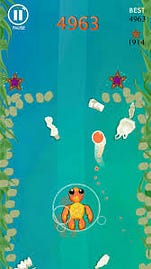
Deep Blue Dump is basically a game that revolves around saving a turtle from plastic ocean waste, an environmental problem that has been threatening and killing lots of sea creatures till this day. This game subconsciously plants itself into the minds of mobile gamers, and grows their awareness on how they could be negatively contributing to the harm on the environment. It is available on both Android and Apple stores.
MUSA — A Brother’s story, a still — in development — puzzle game aims to raise the empathy of people when it comes to refugees as it walks each player through a journey of “loss, despair, and hope”. It will also host one of the most innovative artificial intelligences out there. One which they have partnered with INFINITEWARE and Ameen Altajer to create the first Subconscious Sentiment Artificial Intelligence (SSAI). According to their website, this AI “ grabs your sentiment and behaviour as a player and feeds it into the game to give you a personalised gameplay experience.”
To fund their operations even further and to step into unfamiliar grounds, they have just received an angel investment of $70k from Mr. Faris Algosaibi; and earlier they have been nominated for the International Mobile Gaming Awards — soon after they have graduated Flat6Labs Bahrain 1st cycle.
With mobile gaming taking the lead regionally and globally, it is no surprise that two (VRapeutic & The Stories Studio) of our startups are utilising this platform to create and promote for their games. Whether it is educational, therapeutic, or impactful ; or meant to connect gamers and monetise the industry — such games and startups are already impacting the lives of those that touch them. This is mainly done through a capacity to realise how therapeutic gaming could help alleviate the burdens of behavioural disorders from children and their families; and how it could also help raise the awareness of the globe on societal and environmental problems that are affecting the world at large. And, with SpicaTech Academy enabling children to pursue games development careers that weren’t exactly possible for the generations before them, the future of gaming could play an important role in the rise of the society and MENA’s startup ecosystem.



